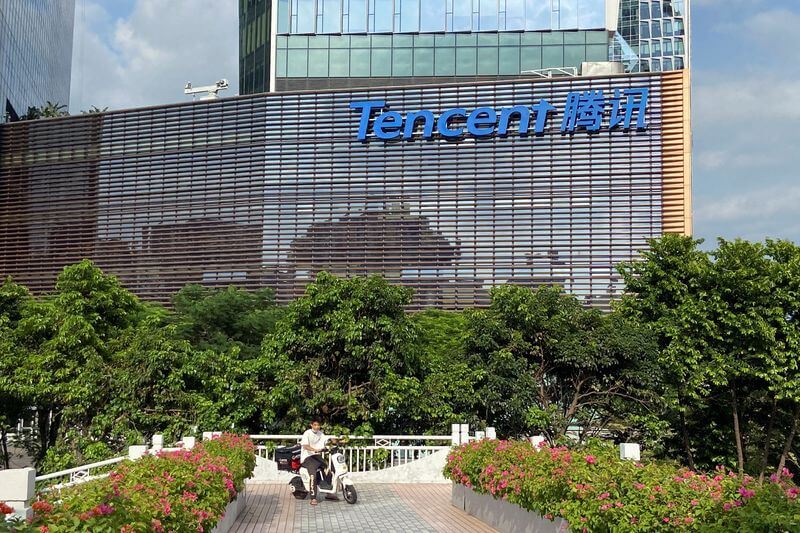In a recent earnings report, Chinese tech titan Tencent Holdings (0700.HK) revealed that its second-quarter revenue growth fell short of expectations, citing a sluggish economy that continues to hinder its recovery from last year’s unprecedented downturn. The company’s cornerstone gaming division experienced growth that was below initial projections, as the domestic gaming revenue remained relatively stable at 31.8 billion yuan, while international gaming revenue managed a 12% increase, reaching 12.7 billion yuan after excluding currency fluctuations.
James Mitchell, the Chief Strategy Officer of Tencent, explained during an analyst call that the suboptimal growth in the video game sector could be attributed to a deliberate decision to release less commercially impactful content during the second quarter. Despite this, industry experts point to intensified competition as a significant challenge for Tencent, a company known for being the world’s largest video game enterprise and the operator of the immensely popular WeChat messaging platform.
Shawn Yang, an analyst at Blue Lotus Capital Advisors, emphasized that not only did Tencent’s established hit games suffer from revenue decline due to content-related issues, but also its newly launched games encountered fierce rivalry from competing game developers like NetEase Inc (9999.HK) and miHoYo.
The reported revenue for the second quarter reflected an 11% growth, totaling 149.20 billion yuan (approximately $20.45 billion). However, this figure fell short of the average estimate of 151.73 billion yuan provided by a panel of 21 analysts surveyed by Refinitiv. Interestingly, this growth rate closely mirrored the 10.7% upsurge observed in the first quarter. It’s worth noting that Tencent had faced a 1% drop in revenue during the same period the previous year, which marked the company’s first-ever sales decline amidst Beijing’s regulatory crackdown on the tech sector.
Despite the challenging regulatory environment of the previous year, there seems to be some easing of regulatory concerns in the current year for China’s tech giants, including Tencent. Chinese authorities have expressed a desire to bolster confidence in the private sector. However, the anticipated economic surge following the relaxation of COVID-19 restrictions towards the end of the prior year has not materialized as expected.
On a positive note, Tencent’s net profit saw a substantial rise of 41%, amounting to 26.17 billion yuan compared to the same period last year. Nevertheless, this figure fell below the average analyst estimate of 33.41 billion yuan.
Among the brighter spots in Tencent’s portfolio, revenue from online advertisements stood out with a remarkable 34% increase, reaching 25 billion yuan. This growth was attributed to heightened demand for its TikTok-like short video service, Video Accounts. Additionally, revenue from fintech and business services demonstrated a solid 15% growth, reaching 48.6 billion yuan. This expansion was indicative of the company’s efforts in both offline and online payment services.
In the context of Beijing’s regulatory stance, Tencent conveyed that the government’s attitude had become more supportive of platform companies such as itself. When asked about the potential impact of newly proposed rules that could limit children’s smartphone usage to two hours a day, Martin Lau, Tencent’s President, reassured analysts that he expects “no material impact” on Tencent, as the company had already implemented significant restrictions on minors’ usage of its services.
Lau also reiterated Tencent’s commitment to artificial intelligence (AI) as a strategic focus, highlighting their preparations for the launch of a self-developed foundation model later in the year. As Tencent navigates the ever-evolving tech landscape, the company remains dedicated to innovation and adaptation, seeking to overcome challenges and capitalize on emerging opportunities.





